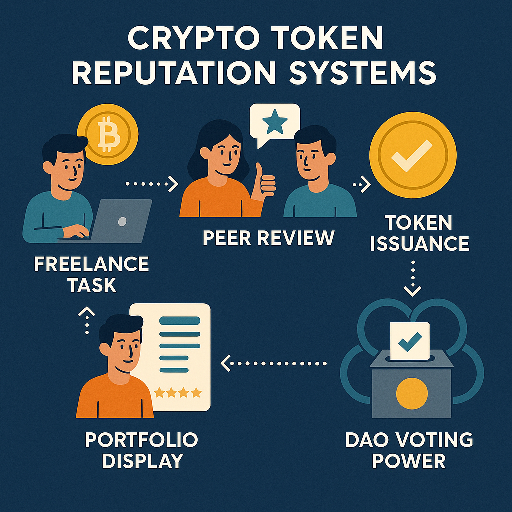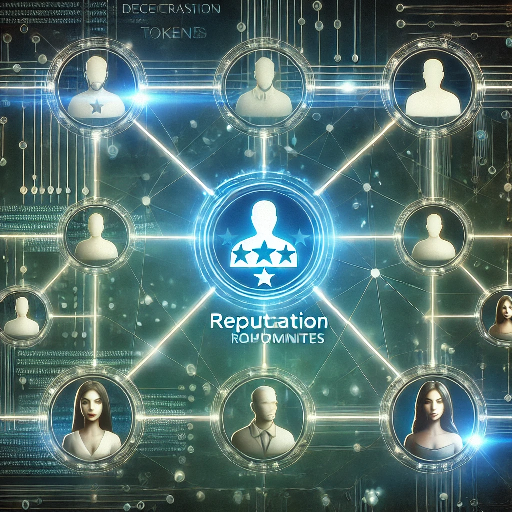Introduction of Crypto Token Reputation Systems
Crypto Token Reputation Systems are transforming how trust and accountability function in decentralized digital environments. From freelance marketplaces to Decentralized Autonomous Organizations (DAOs), these systems are redefining how individuals and entities build and maintain credibility in the Web3 world.
The Shift Toward Decentralized Trust
Traditional reputation mechanisms—star ratings, reviews, and centralized scoring—rely on platforms to moderate and enforce feedback. While effective in Web2, these systems are prone to manipulation, bias, and even censorship. With the emergence of blockchain, the quest for transparent, immutable, and decentralized alternatives became paramount.
Enter token-based reputation systems. By leveraging smart contracts, public ledgers, and incentive alignment, these systems aim to assign reputation scores that are tamper-proof, portable, and fair. The primary objective is to embed trust directly into the infrastructure, removing the need for centralized intermediaries.
Why Reputation Matters in Freelance Markets
The freelance economy has exploded in the last decade, with millions of individuals earning income through remote contracts. Yet, trust remains a major barrier. Clients fear poor quality work or fraud, while freelancers worry about payment issues and unfair reviews.
A decentralized reputation mechanism, especially one backed by crypto tokens, can solve several of these issues. These „Crypto Token Reputation Systems“ allow:
- Immutable Proof of Work: Tokenized attestations for completed tasks.
- Peer Endorsements: Verified recommendations on-chain.
- Reputation Portability: Freelancers carry their history across platforms.
- Performance-Driven Rewards: Payments are automatically released from escrow when predetermined success criteria are met.
This structure not only encourages better behavior but also creates a more competitive, trustworthy market for remote work.
How DAOs Utilize Crypto Token Reputation Systems
DAOs operate without centralized leadership, relying on code, community, and voting to function. Governance in DAOs often suffers from low participation, plutocracy (rule by wealthy token holders), and lack of identity verification.
Incorporating crypto-based reputation changes the dynamics:
- Weighted Voting: Instead of one-token-one-vote, voting power is proportional to a member’s reputation.
- Role Access Through Contribution History: Participation in DAO bounties, proposals, or leadership roles is determined by proven track records.
- Anti-Sybil Defenses: Prevents fake identities from gaming governance.
These adjustments create a more resilient governance model, where actions, not just holdings, determine influence.
Mechanics Behind Tokenized Reputation
While the term Crypto Token Reputation Systems suggests a simple structure, the underlying mechanics are sophisticated. Here are key components:
1. Reputation Tokens
Reputation may be represented by digital tokens, either fungible or as NFTs, that reflect a user’s achievements and reliability in the network. Unlike typical cryptocurrencies, these tokens are often non-transferable to preserve integrity and authenticity.
2. Proof of Interaction
Each contribution—be it a code commit, article, audit, or design—is logged on-chain or in verifiable off-chain storage. Smart contracts can mint tokens or points in response to these events, attributing them to the contributor.
3. Decay and Recency
To ensure scores reflect current engagement, many systems apply a decay function, gradually reducing influence for users who stop participating actively over time.
4. Peer Review and Endorsement
Communities often play a role by voting, endorsing, or challenging reputation tokens. This crowdsourced validation adds another layer of credibility and deters spam or fake activity.
Examples of Crypto Reputation Protocols
Several live and upcoming projects are tackling this problem from different angles:
- SourceCred: Used by DAOs like 1Hive, this system allocates „Cred“ based on contributions in GitHub, Discord, and forums.
- Karma: Aggregates DAO contributor activity across tools like Snapshot, GitHub, and Discourse, assigning scores and badges.
- TalentLayer Protocol: An on-chain framework designed to verify work history and credibility for freelancers and gig workers across decentralized platforms.
- Coordinape: Allows DAOs to distribute rewards via peer recognition, generating a reputation graph in the process.
These examples demonstrate that no single model dominates. Each DAO or marketplace customizes the system to match its culture and goals.
Freelance Reputation on the Blockchain
Imagine a designer working across five DAOs, submitting proposals, delivering assets, and earning compensation. Today, each DAO uses disparate methods to evaluate the designer—if they evaluate at all.
With a unified, blockchain-based reputation layer:
- The designer’s contributions are logged with proofs (e.g., IPFS links, Git commits).
- Each successful task increases a reputation metric visible to any hiring party.
- Clients can filter freelancers by task type, reliability, timeliness, and reviews.
- A fallback mechanism (e.g., arbitration layer) helps resolve disputes fairly.
Such a system benefits not only freelancers but also DAOs, who can source talent with minimal friction.
Risks and Ethical Considerations of Crypto Token Reputation Systems
No system is without pitfalls. Crypto-based reputation poses several challenges:
Sybil Attacks
Fake identities can attempt to inflate reputation. While non-transferable tokens help, robust identity verification or social graphs are often needed.
Privacy Concerns
Storing detailed activity on-chain raises data privacy issues. Solutions like zero-knowledge proofs or off-chain encrypted metadata are emerging.
Inflexibility
Immutable reputation might not reflect context. A poorly rated task years ago may still penalize a contributor today.
Social Bias
Reputation scores can reinforce popularity over substance, marginalizing newcomers or less extroverted contributors.
Designers of such systems must weigh transparency against forgiveness, and reward structures against fairness.
The Future of Reputation: Beyond Ratings
Reputation in Web3 is rapidly evolving from a numeric score to a contextual, verifiable identity. The next wave of systems is expected to feature:
- Artificial Intelligence and Language Models capable of interpreting unstructured reviews and generating a dynamic trust index.
- On-chain resumes, with tags, endorsements, and portfolios.
- Interoperability across dApps, creating a “Reputation Layer” for the Web3 stack.
- Social recovery and redemption mechanisms for restoring reputation over time.
Eventually, one’s on-chain reputation may serve as the primary identity across finance, governance, work, and social contexts.
Case Study: Freelancers in a DAO
Let’s consider a fictional DAO called DesignDAO, a collective hiring freelance designers for decentralized branding.
Current Problem:
- Onboarding new designers is slow.
- Quality assurance is inconsistent.
- High churn due to lack of feedback loops.
Implementing Tokenized Reputation:
- New designers are given a baseline “reputation token” upon onboarding.
- Each completed task is peer-reviewed and linked to an updated score.
- Bonuses are paid in both stablecoins and locked “Reputation Tokens.”
- DAO proposals filter votes from members with a minimum design score.
Outcome of Crypto Token Reputation Systems:
- Faster trust-building among members.
- Better work quality due to visible performance metrics.
- Higher retention as contributors see tangible recognition.
This case shows how even a simple reputation model can improve efficiency and morale.
Integration with Crypto Wallets and Identity
As reputation becomes a valuable asset, users need a secure, transparent way to display it. Integration with crypto wallets like MetaMask or Lens Protocol-based identities can enable:
- Onboarding to platforms using reputation as a passport
- Dynamic NFT badges visible in wallet UIs
- Cross-platform reputation exportability
When users „carry their trust“ in their wallet, Web3 becomes more personalized, accountable, and fair.
Closing Thoughts of Crypto Token Reputation Systems
Crypto Token Reputation Systems are at the heart of collaboration, whether on a gig platform or within a decentralized organization. Crypto Token Reputation Systems offer an exciting new paradigm, removing intermediaries and bringing transparency, accountability, and fairness to online interactions.
However, designing these systems responsibly requires more than technology—it demands ethical foresight, community governance, and continuous iteration. As these systems mature, they could become the default layer for assessing credibility in the decentralized internet, redefining not just who we trust, but how trust itself is built.





















